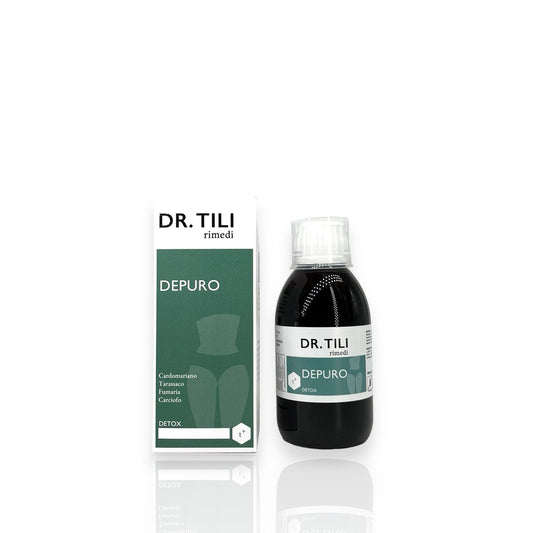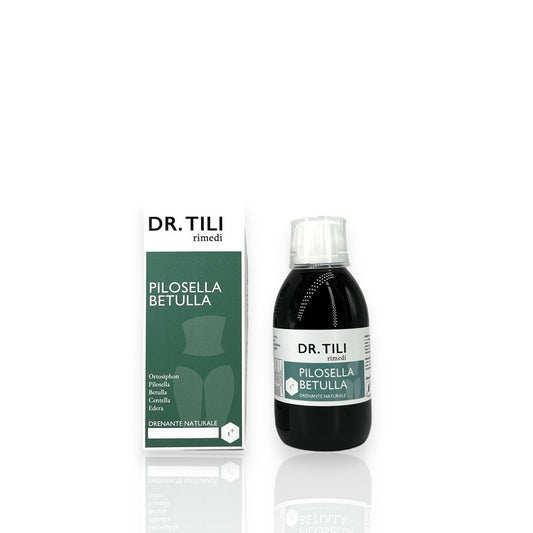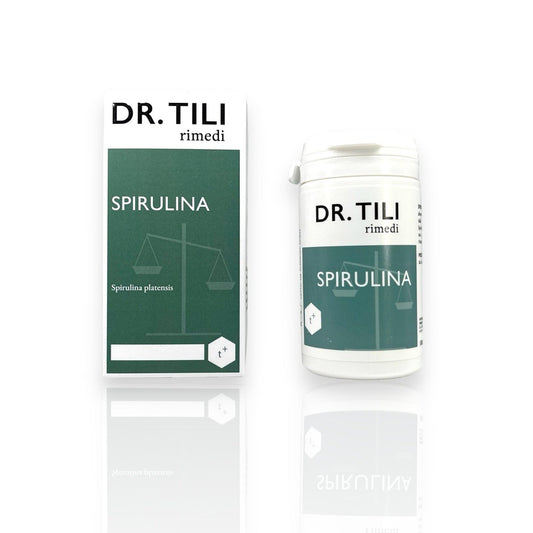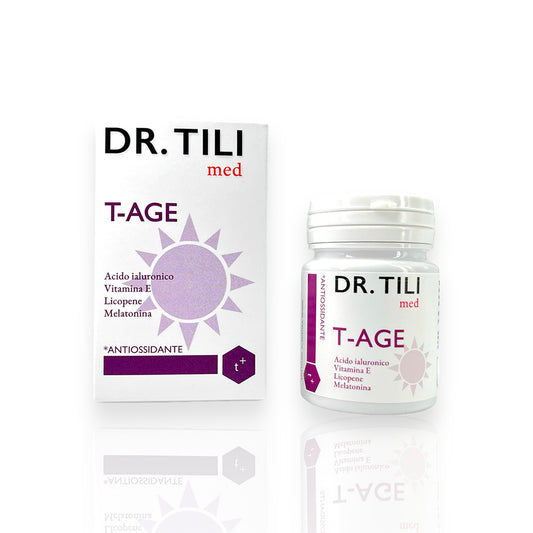DOMPE' FARMACEUTICI SpA
Okitask 20 granulated sachets 40 mg.
Okitask 20 granulated sachets 40 mg.

Pickup available at Farmacia Tili
Usually ready in 24 hours
PRODUCT NET WEIGHT
PRODUCT NET WEIGHT
EAN
EAN
042028023
MINSAN
MINSAN
042028023
Okitask 20 orosoluble sachets 40 mg is an over-the-counter anti-inflammatory medicine based on Ketoprofen Lysine salt. Okitask 20 granulated sachets 40 mg belongs to a group of medicines called “Non-Steroidal Anti-Inflammatory Drugs” (NSAIDs), which can be sold without a prescription. The active ingredient in Okitask 20 granulated sachets 40 mg, ketoprofen, works by blocking the chemicals that normally cause inflammation in our body .
Okitask 20 orosoluble sachets 40 mg can be used for pain of different origins and natures , in particular: headache, toothache, neuralgia (nerve pain), menstrual pain, muscle pain and osteoarticular pain (bone pain and joint inflammation).
ACTIVE INGREDIENTS
Active ingredients contained in Okitask 20 sachets granules 40 mg. - What is the active ingredient in Okitask 20 sachets granules 40 mg.?
Each sachet contains. Active ingredient: ketoprofen lysine salt 40 mg (corresponding to 25 mg of ketoprofen) Excipients with known effect: aspartame, sodium dodecyl sulphate. For the full list of excipients, see section 6.1.
EXCIPIENTS
Composition of Okitask 20 sachets granules 40 mg. - What does Okitask 20 sachets granules 40 mg contain?
Povidone, colloidal silica, hydroxypropyl methylcellulose, eudragit EPO, sodium dodecyl sulfate, stearic acid, magnesium stearate, aspartame, mannitol, xylitol, talc, lime flavouring, lemon flavouring, frescofort flavouring.
DIRECTIONS
Therapeutic indications Okitask 20 sachets granules 40 mg. - Why is Okitask 20 sachets granules 40 mg used? What is it used for?
Pain of various origins and natures, and in particular: headache, toothache, neuralgia, menstrual pain, muscular and osteoarticular pain.
CONTRAINDICATIONS SIDE EFFECTS
Contraindications Okitask 20 sachets granules 40 mg. - When should Okitask 20 sachets granules 40 mg not be used?
Okitask 40 mg granules must not be administered in the following cases: hypersensitivity to the active substance, to other nonsteroidal anti-inflammatory drugs (NSAIDs) or to any of the excipients listed in section 6.1; asthma, bronchospasm, acute rhinitis, urticaria, skin rashes, nasal polyps, angioneurotic oedema or other allergic-type reactions caused by ketoprofen, or by medicinal products with a similar mechanism of action (for example acetylsalicylic acid, other NSAIDs and selective cyclooxygenase 2 inhibitors), see section 4.8; previous bronchial asthma; severe cardiac insufficiency; gastritis; active peptic ulcer/haemorrhage or history of recurrent peptic ulcer/haemorrhage (two or more distinct episodes of proven ulceration or haemorrhage); previous history of gastrointestinal bleeding, ulceration or perforation or chronic dyspepsia; history of gastrointestinal bleeding or perforation following previous NSAID therapy; Crohn's disease or ulcerative colitis; severe hepatic insufficiency (liver cirrhosis, severe hepatitis); severe renal insufficiency; leukopenia and thrombocytopenia; haemorrhagic diathesis and other coagulation disorders, haemostatic disorders; use of high doses of diuretics; third trimester of pregnancy; children under 15 years of age.
DOSAGE
Quantity and method of taking Okitask 20 sachets granules 40 mg. - How to take Okitask 20 sachets granules 40 mg.?
Dosage. Adults and over 15 years: the recommended dose is 40 mg (corresponding to 1 sachet), in a single dose, or repeated 2-3 times a day, in the most intense painful forms. Do not exceed the recommended doses. Special populations. Elderly. The dosage must be carefully established, taking into account a possible reduction of the dosages indicated above. Patients with hepatic or renal insufficiency. Therapy at the minimum daily dosage and careful monitoring are recommended (see section 4.4). In case of renal insufficiency, it is recommended to check the volume of diuresis and renal function (see section 4.4). Okitask 40 mg granules must not be used in patients with severe hepatic or renal dysfunction (see section 4.3). Paediatric population. The safety and efficacy of Okitask 40 mg granules in children have not yet been established. Method of administration: the contents of the sachet can be placed directly on the tongue. It dissolves with saliva: this allows its use without water. It is preferable to take the product on a full stomach. Duration of treatment: The duration of therapy should be limited to overcoming the painful episode. The lowest effective dose should be used for the shortest period necessary to relieve symptoms (see paragraph 4.4).
CONSERVATION
Storage Okitask 20 sachets granules 40 mg. - How do you store Okitask 20 sachets granules 40 mg.?
This medicinal product does not require any special storage conditions.
WARNINGS
Warnings Okitask 20 sachets granules 40 mg. - About Okitask 20 sachets granules 40 mg. it is important to know that:
Warnings. Undesirable effects may be minimised by using the lowest effective dose for the shortest duration necessary to control symptoms (see section 4.2 and sections below on gastrointestinal and cardiovascular risks). The concomitant use of Okitask 40 mg granules with other NSAIDs, including cyclooxygenase-2 selective inhibitors, should be avoided. Gastrointestinal reactions. Gastrointestinal bleeding, ulceration and perforation: gastrointestinal bleeding, ulceration and perforation, which can be fatal, have been reported with all NSAIDs at anytime during treatment, with or without warning symptoms or a previous history of serious gastrointestinal events. The risk of gastrointestinal bleeding, ulceration or perforation is higher with increasing NSAID doses in patients with a history of ulcer, particularly if complicated with haemorrhage or perforation (see section 4.3). These patients should start treatment on the lowest possible dose. Concomitant use of protective agents (misoprostol or proton pump inhibitors) should be considered for these patients and also for patients receiving concomitant low dose acetylsalicylic acid or other drugs likely to increase the risk of gastrointestinal events (see below and section 4.5). Patients with a history of gastrointestinal toxicity, especially the elderly, should report any abdominal symptoms and/or signs (including gastrointestinal bleeding) also at the beginning of treatment. Caution should be advised in patients receiving concomitant medications which could increase the risk of ulceration or bleeding, such as oral corticosteroids, anticoagulants such as warfarin, selective serotonin reuptake inhibitors or anti-platelet agents such as acetylsalicylic acid (see section 4.5). Elderly. The elderly have an increased frequency of adverse reactions to NSAIDs especially gastrointestinal bleeding and perforation which may be fatal (see section 4.2). Patients with active or previous gastrointestinal disease should be carefully observed for digestive disturbances, especially gastrointestinal bleeding. When gastrointestinal bleeding or ulceration occurs in patients receiving Okitask 40 mg granules, the treatment should be withdrawn. Patients with active or previous peptic ulcer. Some epidemiological evidence suggests that ketoprofen may be associated with a higher risk of serious gastrointestinal toxicity than other NSAIDs, particularly at high doses (see sections 4.2 and 4.3). Skin reactions. Serious skin reactions, some of them fatal, including exfoliative dermatitis, Stevens-Johnson syndrome, and toxic epidermal necrolysis, have been reported very rarely in association with the use of NSAIDs (see section 4.8). Patients appear to be at higher risk at the beginning of treatment. Okitask 40 mg granules should be discontinued at the first appearance of skin rash, mucosal lesions or any other sign of hypersensitivity. Precautions. Cardiovascular, renal and hepatic dysfunction: in patients with impaired renal function, the administration of ketoprofen should be carried out with particular caution in view of the essentially renal elimination of the drug. Renal function should be carefully monitored in patients with heart failure, cirrhosis and nephrosis, in patients receiving diuretic therapy, in patients with chronic renal impairment, particularly if the patients are elderly. In these patients, the administration of ketoprofen may cause a decrease in renal blood flow caused by prostaglandin inhibition and lead to renal failure (see section 4.3). Caution is also required in patients subject to diuretic therapy or likely to be hypovolemic because the risk of nephrotoxicity is increased. As with all NSAIDs, Okitask 40 mg granules may increase plasma urea nitrogen and creatinine. As with other inhibitors of prostaglandin synthesis, Okitask 40 mg granules may be associated with adverse events on the renal system that can lead to glomerular nephritis, renal papillary necrosis, nephrotic syndrome and acute renal failure (see section 4.8). In patients with abnormal liver function values or with a history of liver disease, transaminase levels should be periodically evaluated. As with other NSAIDs, Okitask 40 mg granules may cause increases in some liver parameters and also significant increases in SGOT and SGPT (see section 4.8). In case of significant increases in these parameters, therapy should be discontinued. With the use of ketoprofen, cases of jaundice and hepatitis have been reported (see section 4.8). Elderly patients are more predisposed to reduction of renal, cardiovascular or hepatic function. Cardiovascular and cerebrovascular effects. As with other NSAIDs, patients with uncontrolled hypertension, congestive heart failure, established ischaemic heart disease, peripheral arterial disease and/or cerebrovascular disease should only be treated with ketoprofen after careful consideration. Similar consideration should be made before initiating treatment in patients with risk factors for cardiovascular disease (e.g. hypertension, hyperlipidaemia, diabetes mellitus, smoking). Caution is required before initiating treatment in patients with a history of hypertension and/or mild to moderate congestive heart failure since fluid retention and oedema have been reported in association with NSAID treatment. Clinical trial and epidemiological data suggest that the use of some NSAIDs may be associated with an increased risk of arterial thrombotic events (e.g. myocardial infarction or stroke). There are insufficient data to exclude such a risk for Okitask 40 mg granules. An increased risk of atrial fibrillation associated with the use of NSAIDs has been reported. Hyperkalaemia may occur, especially in patients with underlying diabetes, renal insufficiency, and/or concomitant treatment with agents promoting hyperkalaemia (see section 4.5). In these circumstances, potassium levels should be periodically assessed. Infections. Masking of symptoms of underlying infections. Okitask 40 mg granules may mask the symptoms of infection, which may delay initiation of adequate treatment and therefore worsen the outcome of the infection. This has been observed in community-acquired bacterial pneumonia and in bacterial complications of varicella.
INTERACTIONS
Interactions Okitask 20 sachets granules 40 mg. - What medicines or foods can modify the effect of Okitask 20 sachets granules 40 mg.?'
Combinations not recommended. Other NSAIDs (including selective inhibitors of cyclooxygenase 2) and high doses of salicylates (> 3 g/day): the simultaneous administration of several NSAIDs may increase the risk of gastrointestinal ulcers and bleeding, due to a synergistic effect. Anticoagulants (heparin and warfarin): NSAIDs may amplify the effects of anticoagulants. If administration cannot be avoided, the patient must be closely monitored. Platelet aggregation inhibitors (ticlopidine and clopidogrel): the concomitant administration of an NSAID may increase the risk of bleeding by inhibition of platelet function and damage to the gastrointestinal mucosa (see section 4.4). If administration cannot be avoided, the patient must be closely monitored. Lithium: the simultaneous administration of several NSAIDs may increase plasma lithium levels, which may reach toxic values, due to reduced renal excretion. Plasma lithium levels should be carefully monitored and the lithium dosage should be adjusted during and after discontinuation of treatment with ketoprofen and other NSAIDs. Methotrexate, at doses greater than 15 mg/week: concomitant administration of an NSAID may increase the risk of haematological toxicity of methotrexate, especially if administered at high doses, probably due to a displacement of binding to plasma proteins and a decrease in renal clearance. The intake of the two medicinal products should be separated by at least 12 hours. Hydantoins and sulphonamides: the toxic effects of these substances may be increased; since the protein binding of ketoprofen is high, it may be necessary to reduce the dosage of diphenylhydantoin or sulphonamides, in case of concomitant administration. Combinations requiring precaution. Drugs or therapeutic categories that may promote hyperkalaemia: potassium salts, potassium-sparing diuretics, ACE inhibitors, angiotensin II receptor blockers, NSAIDs, heparins (low molecular weight or unfractionated), ciclosporin, tacrolimus and trimethoprim. The occurrence of hyperkalaemia may depend on the presence of cofactors. The risk is increased in case of concomitant administration of the above mentioned drugs. Tenofovir: concomitant administration of tenofovir disoproxil fumarate and NSAIDs may increase the risk of renal failure. Diuretics: subjects treated with diuretics, especially if dehydrated, are at increased risk of developing renal failure secondary to the reduction in renal blood flow caused by prostaglandin inhibition. Hydration before initiating concomitant therapy and close monitoring of renal function after initiation of treatment are recommended (see section 4.4). NSAIDs may reduce diuretics. ACE inhibitors and angiotensin II antagonists: co-administration with cyclooxygenase inhibitors may lead to further deterioration of renal function and possible acute renal failure, especially in dehydrated and elderly subjects. Caution, hydration and monitoring of renal function are recommended in case of concomitant therapy. Methotrexate at doses lower than 15 mg/week: anti-inflammatory drugs cause a decrease in renal clearance of methotrexate with consequent increase in haematological toxicity. In case of impaired renal function or advanced age, monitoring must be more frequent. Corticosteroids: concomitant administration of NSAIDs may increase the risk of gastrointestinal ulceration or bleeding (see section 4.4). Pentoxifylline: co-administration may increase the risk of bleeding: monitoring of bleeding time is recommended. Zidovudine: the combination with NSAIDs increases the risk of toxicity on reticulocytes, with severe anaemia occurring one week after the start of treatment with NSAIDs. Complete blood count and reticulocyte count should be checked one week after starting treatment with the NSAID. Sulfonylureas: NSAIDs may increase the hypoglycaemic effect of sulfonylureas by displacing them from plasma protein binding sites. Possible interactions with other oral hypoglycaemic agents should also be taken into account. Cardiac glycosides: NSAIDs may exacerbate cardiac failure, reduce the glomerular filtration rate and increase cardiac glycoside levels; however, the pharmacokinetic interaction between ketoprofen and active glycosides has not been demonstrated. Associations that need to be taken into account. Antihypertensive agents (Beta-blockers, ACE inhibitors, diuretics): treatment with an NSAID may reduce the hypoglycaemic effect of antihypertensive drugs by inhibiting the synthesis of vasodilatory prostaglandins. Mifepristone: The efficacy of the contraceptive method may theoretically be reduced due to the antiprostaglandin properties of NSAIDs including acetylsalicylic acid. There is some evidence to suggest that concomitant administration of NSAIDs on the day of administration of the prostaglandin dose does not adversely affect the effects of mifepristone or the prostaglandin on cervical ripening or uterine contractility and does not reduce the clinical efficacy of medical termination of pregnancy. Intrauterine contraceptive devices (IUDs): The efficacy of the device may be reduced resulting in pregnancy. Ciclosporin and tacrolimus: Concomitant treatment with NSAIDs may involve an increased risk of nephrotoxicity especially in the elderly. Thrombolytics: Concomitant administration with NSAIDs may increase the risk of bleeding. Anti-platelet agents (ticlopidine and clopidogrel) and Selective serotonin reuptake inhibitors (SSRIs): NSAIDs may increase the risk of gastrointestinal bleeding (see section 4.4). Probenecid: Concomitant administration of probenecid may markedly reduce the plasma clearance of ketoprofen by inhibiting tubular secretion and glucuronide conjugation, therefore an adjustment of the ketoprofen dose is necessary. Quinolone antibiotics: Animal data indicate that NSAIDs may increase the risk of convulsions related to the use of quinolones. Patients treated with NSAIDs and quinolones may have an increased risk of developing convulsions.
SIDE EFFECTS
Like all medicines, Okitask 20 sachets granules 40 mg. can cause side effects - What are the side effects of Okitask 20 sachets granules 40 mg.?
The most commonly observed adverse events are gastrointestinal in nature. Classification of expected frequencies: very common (1/10), common (from 1/100 to <=1/10), uncommon (from 1/1000 to <=1/100), rare (from 1/10000 to <=1/1000), very rare (<=1/10000), not known (frequency cannot be estimated from the available data). The following adverse reactions have been observed with the use of ketoprofen in adults. Blood and lymphatic system disorders. Rare (>=1/10,000, <1/1,000): haemorrhagic anaemia; frequency not known: thrombocytopenia, agranulocytosis, bone marrow failure, haemolytic anaemia, leukopenia, neutropenia, aplastic anaemia, leukocytosis, thrombocytopenic purpura. Immune system disorders. Frequency not known: anaphylactic reaction (including shock), hypersensitivity. Gastrointestinal disorders. Common (>=1/100, <1/10): dyspepsia, nausea, abdominal pain, vomiting; uncommon (>=1/1,000, <1/100): constipation, diarrhoea, flatulence, gastritis; rare (>=1/10,000, <1/1,000): stomatitis, peptic ulcer; frequency not known: exacerbation of colitis and Crohn's disease, gastrointestinal haemorrhage, gastrointestinal perforation (sometimes fatal, particularly in the elderly - see section 4.4), gastric ulcer, mouth ulceration, duodenal ulcer, duodenal perforation, melaena, haematemesis, abdominal discomfort, colitis, heartburn, mouth oedema, pancreatitis, hyperchlorhydria, gastric pain, erosive gastritis, tongue oedema. Skin and subcutaneous tissue disorders: Uncommon (>=1/1,000, <1/100): rash, pruritus; very rare (<1/10,000): erythema; frequency not known: photosensitivity reaction, alopecia, urticaria, angioedema, bullous dermatitis including Stevens-Johnson syndrome and toxic epidermal necrolysis, oedema, exanthema, Lyell syndrome, maculo-papular rash, purpura, acute generalized exanthematous pustulosis, dermatitis. General disorders and administration site conditions. Uncommon (>=1/1,000, <1/100): fatigue; very rare (<1/10,000): facial oedema; frequency not known: peripheral oedema, chills, asthenia. Nervous system disorders. Uncommon (>=1/1,000, <1/100): headache, dizziness, somnolence; rare (>=1/10,000, <1/1,000): paraesthesia; frequency not known: seizure, dysgeusia, dizziness, dyskinesia, syncope, tremor, hyperkinesia. Eye disorders. Rare (>=1/10,000, <1/1,000): blurred vision (see section 4.4); frequency not known: periorbital oedema. Ear and labyrinth disorders. Rare (>=1/10,000, <1/1,000): tinnitus. Hepatobiliary disorders. Rare (>=1/10,000, <1/1,000): hepatitis, increased transaminases, increased blood bilirubin; frequency not known: jaundice. Respiratory, thoracic and mediastinal disorders. Rare (>=1/10,000, <1/1,000): asthma; frequency not known: bronchospasm (especially in patients with known hypersensitivity to acetylsalicylic acid and other NSAIDs), rhinitis, dyspnoea, laryngeal oedema, laryngospasm, acute respiratory failure (one case, with fatal outcome, has been reported in an asthmatic patient sensitive to acetylsalicylic acid). Renal and urinary disorders. Frequency not known: acute renal failure, tubulointerstitial nephritis, nephritic syndrome, abnormal renal function test, haematuria, nephritis, nephrotic syndrome, glomerulonephritis, fluid/sodium retention with possible oedema, acute tubular necrosis, renal papillary necrosis, oliguria. Psychiatric disorders. Frequency not known: altered mood, depression, hallucination, confusional state, agitation, insomnia. Cardiac disorders. Frequency not known: cardiac failure, atrial fibrillation, palpitations, tachycardia. Vascular disorders. Frequency not known: hypertension, vasodilation, hypotension, vasculitis (including leukocytoclastic vasculitis). Metabolism and nutrition disorders. Frequency not known: hyperkalaemia, hyponatraemia. Infections and infestations. Frequency not known: aseptic meningitis, lymphangitis. Investigations. Rare (>=1/10,000, <1/1,000): weight increased. Clinical trial and epidemiological data suggest that use of some NSAIDs (particularly at high doses and in long-term treatment) may be associated with an increased risk of arterial thrombotic events (for example myocardial infarction or stroke) (see section 4.4). Reporting of suspected adverse reactions: Reporting suspected adverse reactions after authorisation of the medicinal product is important. It allows continued monitoring of the benefit/risk balance of the medicinal product. Healthcare professionals are asked to report any suspected adverse reactions via the national reporting system at https://www.aifa.gov.it/content/segnalazioni-reazioni-avverse.
PREGNANCY AND BREASTFEEDING
If you are pregnant or breast-feeding, think you may be pregnant or are planning to have a baby, ask your doctor for advice before taking Okitask 20 sachets granules 40 mg.
Pregnancy: The use of ketoprofen during the first and second trimester of pregnancy should be avoided, the administration of ketoprofen should be considered only if the expected benefit for the mother outweighs the risk to the embryo or fetus. Inhibition of prostaglandin synthesis may adversely affect the pregnancy and/or embryo/fetal development. Results of epidemiological studies suggest an increased risk of miscarriage and of cardiac malformation and gastroschisis after use of a prostaglandin synthesis inhibitor in early pregnancy. The absolute risk of cardiac malformations increased from less than 1%, up to approximately 1.5%. The risk was considered to increase with dose and duration of therapy. In animals, administration of prostaglandin synthesis inhibitors has been shown to cause an increase in pre- and post-implantation loss and embryo-fetal mortality. In addition, an increased incidence of various malformations, including cardiovascular, has been reported in animals given prostaglandin synthesis inhibitors during the organogenetic period. From the twentieth week of pregnancy onwards, the use of ketoprofen may cause oligohydramnios resulting from fetal renal dysfunction. This may be seen soon after initiation of treatment and is usually reversible upon discontinuation of treatment. In addition, cases of constriction of the ductus arteriosus have been reported following treatment in the second trimester, most of which resolved after discontinuation of treatment. Therefore, during the first and second trimesters of pregnancy, ketoprofen should not be administered unless clearly necessary. If ketoprofen is used by a woman attempting to conceive, or during the first and second trimester of pregnancy, the dosage should be kept as low as possible for the shortest duration possible. Following exposure to ketoprofen for several days from the 20th week of gestation onwards, antenatal monitoring for oligohydramnios and constriction of the ductus arteriosus should be considered. If oligohydramnios or constriction of the ductus arteriosus occurs, treatment with ketoprofen should be discontinued. During the third trimester of pregnancy, all prostaglandin synthesis inhibitors may expose the fetus to: cardiopulmonary toxicity (premature constriction/closure of the ductus arteriosus and pulmonary hypertension); renal dysfunction, which may progress to renal failure with oligohydramnios (see above). The mother and the neonate, at the end of pregnancy, to: possible prolongation of bleeding time and antiaggregant effect which may occur even at very low doses; inhibition of uterine contractions resulting in delayed or prolonged labor. Use of the medicinal product close to delivery may cause alterations in the haemodynamics of the small circulation of the newborn with serious consequences for respiration. Consequently, ketoprofen is contraindicated during the third trimester of pregnancy (see sections 4.3 and 5.3). Breastfeeding: there is no information available on the excretion of ketoprofen in breast milk. Ketoprofen is not recommended during breastfeeding. Fertility: the use of NSAIDs may reduce female fertility and is therefore not recommended in women intending to become pregnant. The administration of NSAIDs, as well as Okitask 40 mg granules, must be suspended in women who have fertility problems or who are undergoing investigation of fertility.


























